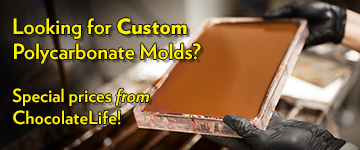Very interesting topic, however I think the analogy misses on a few points. Most $100 bottles of wine were originally sold for $20-$50 when new. As they age and get better (not all wines age well, contrary to popular belief) the price increases simply due to supply and demand. Hence a lot of collectors out there are filling thier cellars up with cases of $20 wines. In 10+ years, that case of $20 wines *might* be a case of $100 wines.
Are there winemakers selling $100 for new bottles? of course. But they are few and far between, relatively speaking. And almost all of that is due to reputation.
Secondly, unlike most chocolate makers, winemakers tend to have pure and total control over thier grape production. Many of the finest Bordeux's are from winemakers that have been winemaking for generations. They have grown a reputation, without being able to grow thier production. There's a real difference between a good grape and an amazing grape.
I know I'm new to the industry and just barely coming out of the hobby, but most of the cacao that I seem to find is a blend of a myriad of different farmers, farming techniques, etc. Further, post harvest ferments and drying can range from great to abominable. All of which is just outside the hands of most chocolate makers. We get what we get and learn to work with it.
I think it's the combination of a bunch of things like this that holds prices where they are even though there are premium artisinal made chocolates vs cheapo candy chocolate. Most of what I've seen for $15+ bars is pure ego, while only some of it is rarity, but mostly ego. If we can somehow work in something special in one chocolate that isnt in another, that's where I think the prices can and would climb.
It's not a matter of producing a $100 bar, it's a matter of producing something that becomes worth $100 and people are willing to buy as a matter of value and specialness, and rarity. Elitism is where a lot of high dollar things get thier values.
updated by @timwilde: 09/09/15 05:34:03



